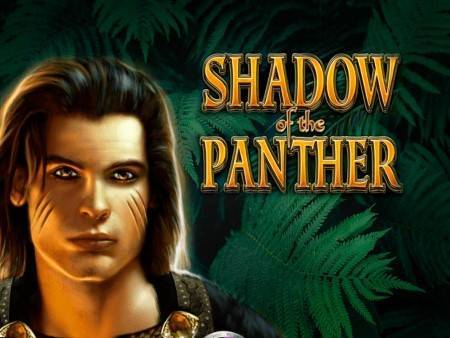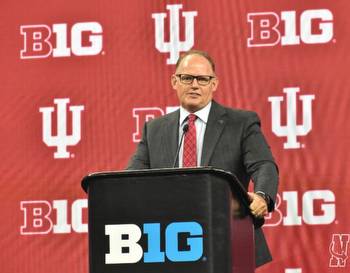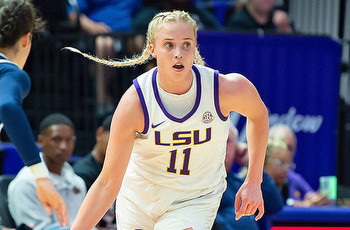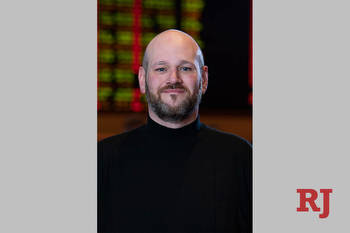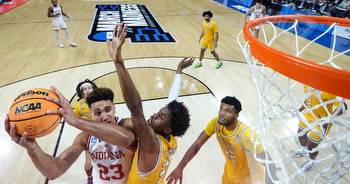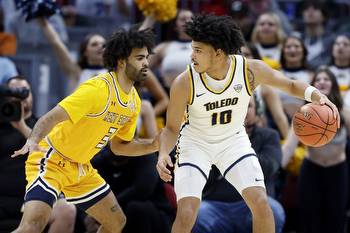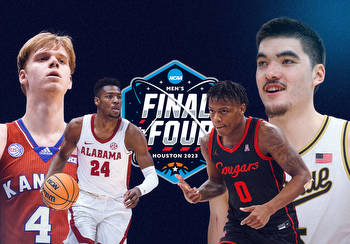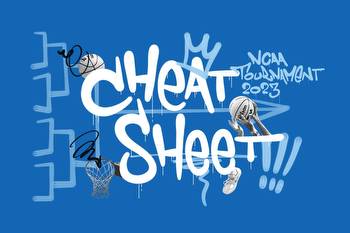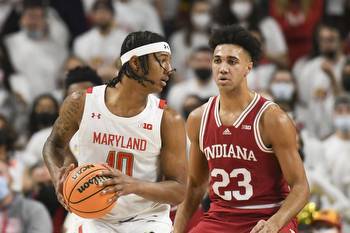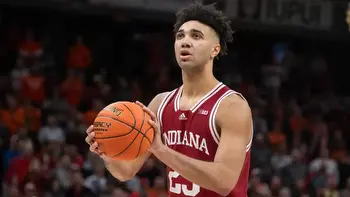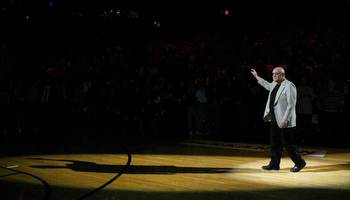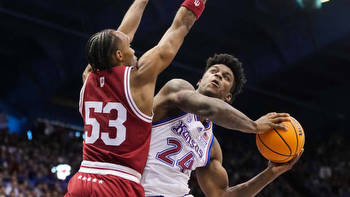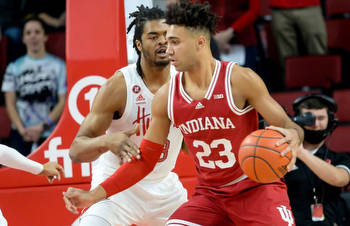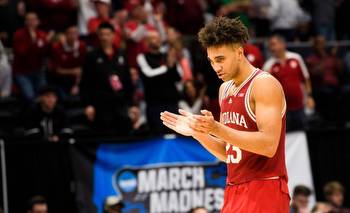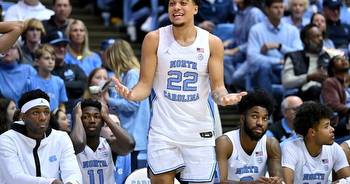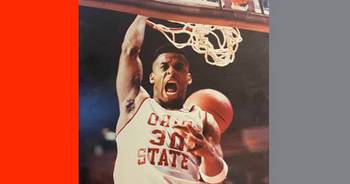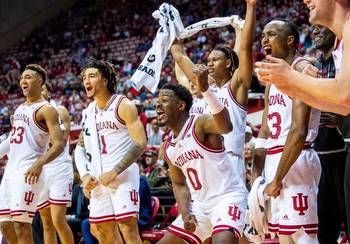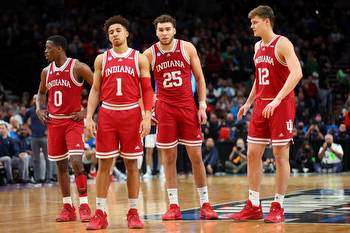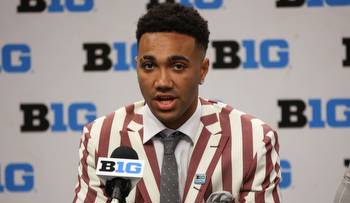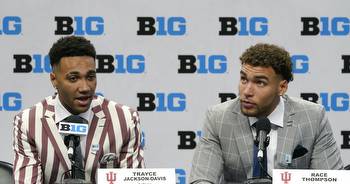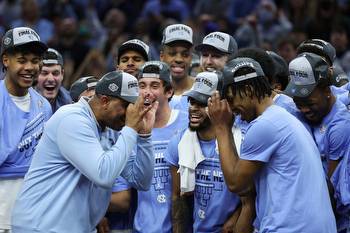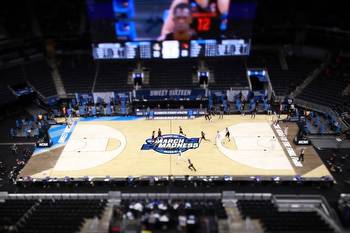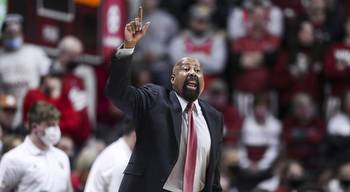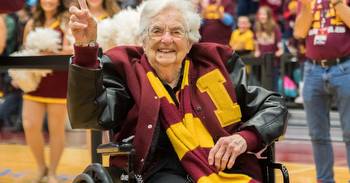On Bob Knight, dead at 83, and his polarizing yet unmistakable legacy
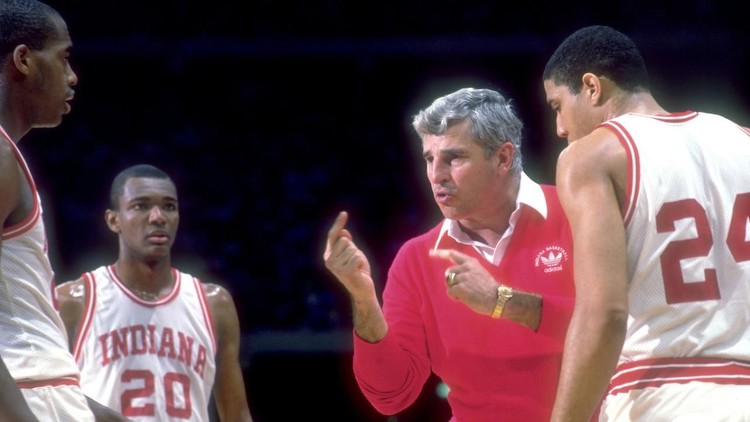
The greatness of Bob Knight or the dark side? That will always be the question, even now. Maybe especially now. But let’s start with the greatness because, in the end, that's what seems the most important.
One night stands out, and it had nothing to do with any of his three national championships.
This was March 22, 1984, and the Sweet 16 of the NCAA tournament. Mighty North Carolina was 28-2 and No. 1 ranked, No. 1 seeded, No. 1 everything. The glittering lineup included Michael Jordan, Sam Perkins, Kenny Smith and Brad Daugherty — four Tar Heels who would eventually combine to score 76,812 points in the NBA. And they had Dean Smith coaching them. Isn't that what they call a lock?
The opponent was a rather unheralded 21-8 team from Indiana that began the season by losing to Miami of Ohio. The Hoosiers starters were freshman Steve Alford, Uwe Blab, Mike Giomi, Dan Dakich and Marty Simmons. Five guys whose total NBA career point production would top out at 1,315. The only reasonable decision that Thursday evening was to bet big on North Carolina. But then, who’d bet on Indiana.
One thing, though. The Hoosiers had Bob Knight on the bench. He lived for moments like this, when he could tell the skeptics to kiss his . . . well, you’ve probably heard his speech about that subject. It ended 72-68 for Indiana, a shocking and painful exit for Jordan from college basketball that he could never erase, no matter how many shoes he sold. And there in living color — IU crimson and Carolina blue — the genius of what Knight could do on a basketball court, how he could unlock the intricacies of the game and prepare a team to be collectively successful far beyond its individual flaws, was on full display.
That was his legacy. But not all of it.
He will forever be like a cumulus cloud floating over the sport. Look up at the fascinating aura of Bob Knight, study it closely. What do you see?
The championships, the perfection of 1976, the 1984 Olympic gold medal, the constant winning — like the line from the school fight song — for the glory of old IU? The motion offense that transformed the game? The discipline, the steadfast adherence to the rules, the demand that attending Indiana meant actually going to class at Indiana? The diplomas that far outnumbered the trophies? The generosity often hidden from the public.
Or, and there’s almost always an or with Bob Knight. . .
The rage, the ill-chosen words and actions, the chair flying through the air early in the Purdue game, the hands around the neck of one of his players?
So, so, so much to admire. And yet so much to shake your head at and wonder why. His stature will forever be unique, forever be legendary, forever be historic, its magnitude unquestioned. But it will always be complicated. Renown, respect, recognition. Sure, all that. But surely some regret, too.
He could be incredibly giving and kind to friends. And unfathomably combative to those who struck one of his nerves, even if accidentally.
He could speak with intelligence and humor on most any topic. But also fill the air with unrelenting and unnecessary profanity.
He created his teams to be a marvel at control and accountability and anticipating the results of their actions, but could have the hardest time dealing with those himself. He was the virtuoso master of the basketball court and the film room and the locker room. The world outside could be more challenging.
He was unyielding which meant he could also be unrepentant. That was a strength, except when it was a weakness.
That man who would do anything for a friend. . . could he possibly be the same guy who publicly humiliated a poor young moderator working a press conference because the kid made a simple mistake? The coach who paid respectful and honest homage to the giants of the game before him, was he the same fellow who once stuck a starter’s pistol in a reporter’s face and pulled the trigger? Or allegedly hit a Puerto Rican cop?
The Bob Knight era blew all different directions, like an exploding fireworks show. He was the hero of much of his state, but the man who got fired. He was the heart and soul of Indiana University for many who wore their red every winter, but after the messy divorce, became estranged from the place, refusing offers of reconciliation even from his own former players. They urged him to come back before it was too late. It almost was. But in the last years of his life, with time clearly taking its toll, he reestablished ties to Bloomington. Had that not happened, it would have been a tragedy.
There were some interesting features to Knight’s NCAA tournament career at Indiana. You never wanted to play him the first game of the weekend, when he had time to prepare. No, no. That’s when he seemed his most dangerous, knocking off defending champion UCLA in 1975, No. 1 UNLV in 1987, North Carolina in 1984. Nearly took out Duke in the 1992 Final Four.
But the second game of the weekend, when preparation had to be a rush job, his Indiana teams could be more vulnerable. Two days after stunning Jordan and the rest of the Tar Heel stars, the Hoosiers scored only 48 points and lost to underdog No. 7 seed Virginia. Two days after beating top-ranked UNLV at the 1987 Final Four, they had to be saved against Syracuse by Keith Smart. Two days after beating Mike Krzyzewski and Duke at the 1987 regional — the only team that would eliminate the Blue Devils before the Final Four in seven years — the Hoosiers needed a massively lucky bounce to escape 10-seeded LSU.
One other rather odd thing about his Indiana reign. His magic seemed to lose a step in the latter years. The Hoosiers’ last true big season was 1992-93, when they won the Big Ten and advanced to the Elite Eight. That made 11 conference titles in 21 years. Extraordinary in a league that strong. But Indiana never took another in Knight’s final seven seasons. The Hoosiers went 4-7 in March and his last five Hoosiers teams were blasted out of the NCAA tournament by an average of 17 points a game. Something happened, but what?
Then came the zero tolerance policy, the showdown with the university president that he lost, the hurt feelings, the end of an era. There would be a postscript at Texas Tech and later ESPN, but Indiana and Bob Knight formed the marriage for the history books, even if it ended badly.
Or maybe it didn’t end in 2000, but just needed a separation. Maybe it ended Wednesday at the age of 83. The coach like no other, with a story like no other. The so often good, the sometimes bad, the occasionally ugly, but always unforgettable and never, ever routine. It is impossible to imagine college basketball — especially Indiana basketball — without him. It is impossible to look at his journey and think his epitaph simple.
